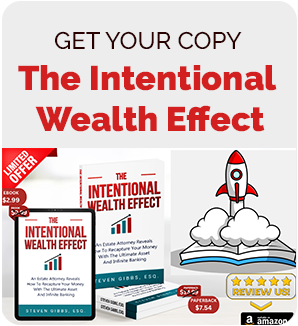Having already wrote a comprehensive article on 401k withdrawals rules, the focus in the following article will be on 401k pros and cons, including the history of the plan and why it is that virtually all working class Americans are participants.
The primary theme throughout this article is to help answer the question of whether the 401k plan is a scam, ripoff, hoax, sham or a wise and prudent investment strategy.
Why Financial Institutions Love the 401K
A point to ponder as you read this article is that financial institutions love 401k plans.
Why is that, you ask?
It is because the plans allow them to get your money and the government’s money. You see, your 401k plan is funded with pre-tax dollars.
So the financial institutions get your money and the government’s money upfront.
And you don’t get it back until many years down the road, at which time you get to pay the government their “fair” share, i.e. tax.
So, is the 401k Plan a scam?
Let’s start the conversation off with some 401k advantages before we dive into the negatives.
401K Pros and Cons
The tried and “true” effectiveness of the 401(k) is touted on just about every street corner of the financial services market.
And truth be told, the 401k has made many financial service individuals a lot of money in the form of fees and bonuses.
So I guess it’s true that the past 30+ years of it’s existence have been good for some. But when you compare the financial habits of the rich vs poor, you begin to see that the 401k is not all its made out to be.
You would be hard pressed to find one wealth person who made their money by stuffing it away into a 401k.
In contrast, real estate wealth building with infinite banking is a fantastic strategy to building an maintaining wealth.
Now, before we get into 401k negatives, let’s address 401k pros:
401K Pros
The biggest benefit of the 401k is the employer match. But consider the diminishing returns associated with your match over your lifetime.
In the first 5 years, the match is impressive. But over time, your match diminishes greatly as your 401k account grows. And over a lifetime, your match will contribute around 1% to the total value of your account.
Add in the fact that your match will ultimately be taxed when you withdraw it and it amounts to even less than 1% over your lifetime.
What are some other benefits of the 401k?
- Makes certain financial service professionals rich via fees and bonuses.
- (This is a pro for the financial professionals but a con for the 401k participant).
- Money you put into your 401k is tax deferred (deferred, not tax free).
- 401k matching, i.e. “free money,” because the best things in life are free, right? And don’t forget that you need to stay at your current job until you are fully vested in your 401k plan!
- It acts as a forced savings account. (But why not use the infinite banking concept® rather than a 401k?)
For those with a strong “sarcasm radar” you may be sensing a certain amount of underlying snark.
And if you who haven’t figured it out yet, this article will not be singing the advantages of the 401k.
So 401ks are great for those who manage the plans, but what about for the rest of us – those of us that don’t make any money in a declining market or with a poor performing mutual fund?
For us, the reality is that the “blessed” 401(k) has not delivered what was promised.
In fact, we’ll learn that there are many things that should outrage us about what a total ripoff the 401k plan truly is.
In this article we’ll discuss what I think are just seven of the reasons you should absolutely despise your 401(k). I take that back. I’ll list seven reasons you should absolutely despise ALL 401(k)’s, not just yours.
Back to the Future
If I was an employee working back in the 80’s when this new and exciting 401(k) was introduced, I might be interested.
Why? Because the tax deferred 401k plan gave me an opportunity to participate in the “exciting” stock market to save for my retirement.
But now we have three and a half decades of data to look at. We can see now that the 401(k) is a ripoff and hasn’t delivered what it promised.
In fact, the man who is considered the “Father of the modern 401k”, Ted Benna, says
“Hey, if I were starting over from scratch today with what we know, I’d blow up the existing structure and start over.”
Yikes!
401k Cons
[7 Reasons to Hate your 401k]

“Give us your money today for future dollars down the road. You can trust us.” – the Government
#1.Unpredictability
Okay, so let’s get into the nitty gritty here. The first thing you should hate about your 401(k) is the unpredictability, i.e RISK.
Just for the sake of argument, let’s say that your particular 401(k) is invested in the S&P 500 index.
In reality, the average actively managed stock market mutual fund returns 2% less per year than the S&P 500 index.
But just to be fair let’s say that you happen to have one of the few funds that matches the performance of the overall S&P 500 index. Your portfolio value per year would be a huge roller coaster of ups and downs.
An investor from 1960 to 1969 would have seen a 5.6% increase in their portfolio value (minus fees of course) when accounting for inflation. That same investor would have seen a -1.4% return (that’s a decrease in value of 1.4%) over the next decade.
Now part of this is accounting for inflation of course, but still, it’s disheartening and unpredictable.
The next two decades (80’s and 90’s) were some of the best in the history of the market. In the 80’s the value would have increased a little over 11% and in the 90’s the value would jump another 14%. Pretty amazing really.
But then…
…in the following decade you see two of the biggest crashes in the history of the market. The S&P 500 index dropped almost 40% over 3 years in the early 2000’s, and then again in 2008 it dropped a whopping 37% in a single year.
Additionally, with a 401k, your gains are fully taxable and you won’t pick up dividends or long term capital gains. So you end up paying higher taxes in your 401K than if you had invested independently.
So, what’s the moral of this story?
The moral is that you can’t predict the value of your portfolio with any degree of accuracy.
For the person who invested from 1950 to 2008 the return was roughly 6.8%. Not horrible over the long haul, but there are years in there where your portfolio value dropped dramatically.
You may just assume you’ll ride out the storm if you’re in your 40’s when the market tanks.
But why should you have to put up with the risk at all?
YOU SHOULDN’T! There is a way to mitigate your risk and guarantee you a minimum value return each year.
The way to guarantee you a minimum value return (plus the potential for more) is with something called dividend paying whole life insurance.
But we can talk about that some other time. For now, back to why the 401K plan is a scam.
#2. 401k Taxes on Withdrawals
The second thing you should hate about your 401(k) is the tax consequences of 401(k) withdrawals.
There are two interrelated components of 401k taxes that you need to be aware of.
First, your withdrawals are taxed as ordinary income.
Second, your tax bracket will most likely be higher in the future than it is now.
Capital Gains vs Ordinary Income
The capital gains tax rate is much lower than the ordinary income tax rate. 401k tax rules state that your income from your 401k is taxed at the higher ordinary income tax rate.
And thanks to inflation, your tax bracket will most likely be much higher in 20-30 years than they are today, simply because your dollars will have depreciated, requiring more dollars in the future to purchase similar items today.
Higher Taxes Down the Road
“But I thought the 401(k) was a tax-deferred plan. Isn’t that a good thing.”
No, it’s not necessarily a good thing. And it’s definitely not the BEST thing.
Let me explain.
So, you probably know that the 401(k) is funded by your hard earned pre-tax dollars.
Therefore, in theory you can put more money in because you don’t have to pay tax on it first, you can defer the tax until you access your money via a 401(k) withdrawal.
So isn’t that good?
Well it depends on your tax situation when you start to withdraw the money from your 401k.
If you start contributing to your 401(k) when you’re in your twenties and you are just starting out, you may have a lot of write-offs and be in a low income tax bracket.
But here is the issue, when you take your first 401(k) withdrawal in retirement, you may have very few write-offs, and your income could be significant if you’ve saved and invested well.
Now, even though your 401(k) grew faster because it was tax-deferred, you’ll now have to pay a higher tax rate on the money you put in, AND the growth of your 401k investment.
Let’s look at an example.
An initial 401k investment of $50,000 invested for 30 years in a tax-deferred 401(k) with 8% annual compounding interest (this is really generous interest rate, BTW) will yield a total value of $503,130.
If you invest $50,000 in a taxed account, the same 8% annual compounding interest would yield a total value in year 30 of $250,620, assuming a 31% tax bracket.
That’s a huge difference!
“So doesn’t it make sense to use the tax-deferred?”
Well, hold on.
You don’t get to keep all that money in your 401(k). Uncle Sam needs his share.
Your total value of your 401(k) withdrawals after taxes (assuming a 31% tax bracket again – and again being generous) would be $347,168. So that’s still better than the taxed account value of $250k.
The above example is the typical sales pitch you’ll get from a someone sharing the supposed advantages of the 401(k) investment plan.
The reality is that they don’t get anywhere near that return on their investment because they pay fees and incur costs associated with their investments.
But let’s just assume that those numbers are correct. What if there was something that was even better. Something that allowed you to grow your account tax-deferred, and then access all the cash in your account without paying taxes at all!
In other words, what if there was an investment product that was able to grow like the tax-deferred 401(k), but didn’t have the tax penalties? Wouldn’t that be the BEST option out of them all?
This is exactly what is possible with cash value whole life insurance.
#3. 401k Penalties
The third thing you should hate about your 401(k) is the penalties. For some reason we have come to accept the fact that our government charges us a fee to use our own money.
We earn money, we put it in a tax-deferred account, and because the government allows it to grow tax-deferred, if we choose to access the money prior to age 59.5, we get penalized 10%.
You should hate this.
Let’s say for example that you’ve been saving for 20 years and you’re now 55 years old. You have a total 401(k) value of $250,000.
If you need to buy a car for work, or you need some money to help with a job relocation, or perhaps you want to pay for a portion of your daughter’s wedding – your 401(k) withdrawal will incur a tax at your current tax rate AND you’ll be penalized 10%.
Let’s say you need $25,000. If you’re in the 33 % tax bracket, you’ll have to take out $52,000 from your 401(k) in order to get $24,960.
WHAT? THAT’S OUTRAGEOUS!
I agree. Here’s the math.
The government taxes your early 401(k) withdrawal at your current tax rate (33%). So there goes $17,100 to the federal government. But the state also gets some money – $4680 to be exact.
And of course let’s not forget the early withdrawal penalty of 10%, which saps another $5200 away from your withdrawal.
So you pay $27,040 to get $24,960.
Does this seem like a good plan to anyone?
Most individuals choose to keep their money in their 401(k) when they’re shown all the fees associated with an early withdrawal.
And to add insult to injury, if they do choose to take the early withdrawal, their 401(k) value drops by 20% (in the example above). The loss, at age 55, of 20% is devastating to their retirement plan. It could take them 3-5 years just to get even again.
If that same person had a properly structured cash value life insurance policy with paid up additions, they could access their money at any time, without any penalty, AND without any taxes.
How is it possible?
The simple answer is that they take out a loan on their death benefit. This reduces their death benefit if they don’t repay the loan, BUT…and this is a huge point, don’t miss it…their cash value still grows as if they hadn’t taken any loan out at all!
Again, it’s clear that the 401(k) isn’t the best option out there. It had it’s time in the sun, and now it’s time to move on.
#4. 401k Hidden Fees
The fourth thing you should hate about your 401(k) is the hidden fees. According to the research firm Demos,
“[O]ver a lifetime, fees can cost a median-income two-earner family nearly $155,000 and consume nearly one-third of their investment returns.”
And trying to determine your cost to invest in a mutual fund within your 401(k) is very challenging. Even for fund savvy investors, the process of determining all the costs associated with a given 401(k) plan is not easy.
Consider the fact that the U.S. Department of Labor has created a 20 page report that attempts to identify and explain all the possible fees for a 401(k) plan.
There are sales charges, also known as commissions, or loads. In addition you’ll find management fees, also known as investment advisory fees, or account maintenance fees. And then of course you’ll find that fees for your investment manager, trustee, recordkeeper, and the communications firm are all charged separately.
Do you know what the expense ratio is? You should, it’s the percentage of your account that you’ll be paying as a fee.
As you can see the process of determining what you’re paying for your 401(k) is challenging to say the least.
But why is it so important to know what you’re paying in fees?
Well the reason is simple. You need to know because small differences, of even just 1%, can lower your total account value by up to 30% over the course of 35 years of investing.
In fact, the example used by the Department of Labor results in a $227,000 account value vs. $167,000 for the same account with a 1% greater cost in fees. The difference is 28%, and you should hate that.
In fact, you should hate any product that has fees so hidden that it takes a U.S. Government department 20 pages to define them.
Consider this stat from Demos: the average mutual fund return is 7%. However, after fees, a mutual fund averages only 4.5 percent.
And the worst part?
That is before you have to account for taxes! You can expect taxes to take out another 1/4 to 1/3 of your overall value. That means your return on investment is more like 3.5%.
In other words, your 401k plan is barely keeping up with inflation!
#5. 401k Mandatory Distributions
The fifth thing you should hate about your 401(k) is the required mandatory distributions (RMDs). At this point you may be unconvinced that 401ks are a scam and you may be saying
“But I love giving the government tens of thousands of dollars when I withdraw from my retirement!”
Or perhaps you’re saying
“I don’t care if I’m heavily penalized, I just want to be like all my friends and co-workers!”
If that happens to be you, then I don’t know if this last point is going to convince you 401ks are a scam either. But it should.
When you reach the age of 70.5 you’ll be required by the IRS to withdraw from your 401(k). Uncle Sam wants his taxes, so they don’t want you sitting on that account.
According to some large banks, over half of the people with 401(k) accounts don’t take their 401k required minimum distribution (RMD) until after November 1st of each year.
That means that it’s likely these individuals don’t actually need the money, and yet they’re forced to withdraw it and pay taxes on it.
“But what if I don’t withdraw the required amount?”
For those that don’t withdraw their mandatory distribution, they will be penalized by paying a 50% tax on the amount they should have withdrawn. In other words you don’t have much choice. You must withdraw your money from the 401(k) and pay the required taxes.
That’s bad news for those with a 401(k). But if you happen to be a person planning retirement with life insurance, you’ll never be forced to withdraw money.
#6. You Can’t Take It With You
Ask yourself, or your human resources department,
“How long before I am fully vested in my 401k plan?”
Maybe you are one of the lucky few whose 401k plan provides immediate vesting. Chances are you are in the majority and your 401k plan will not fully vest for a number of years.
If you plan on leaving your employer or you are “downsized” you will not get that 401k match you have been tirelessly working for.
#7. 401k Salary Reduction Plan

the 401K Plan is a salary deferral plan, where you choose to defer getting dollars today for future depreciated dollars.
Your 401k plan is a salary reduction plan. You are taking valuable dollars today and putting them into an account where your dollars will sit in financial purgatory until some “wonderful” day down the road when you retire.
That is why the 401k plan is also a life deferral plan. You are putting your dreams on hold for some future day when you will be able to pursue everything you wanted to do.
The harsh reality is, that dream will never unfold if you don’t start living today.
Wouldn’t it make more sense to dispense with the 401k plan and instead start living for the future—today?
Take control of your finances instead of letting the so called “experts” manage your money. It’s your money, after all. It is time you started to make money work for you!
Conclusion
There you have it, the seven things you should hate about your 401(k), and of course a healthy alternative has been thrown in there to give you hope. In case you missed what the alternative was, it is becoming your own banker.
The reality is that a 401(k) will likely grow each year because of the contributions that are going into it. So it’s tempting to look at your account value each year and think “It must be working.”
Unfortunately, you won’t ever see the opportunity cost of putting your money to use elsewhere. You’ll just assume you made the best decision you could.
But now you know that there’s a better way to save for retirement. And not just save for retirement, but also provide financing for your family and business needs today. Not to mention the fact that there is a tax-free legacy left to your heirs.
If you’re tired of following the uniformed crowd and looking to ditch the unpredictability, tax consequences, penalties, hidden fees, and mandatory distributions associated with your 401(k), then give us a call. We can help you get back the predictability you lost, and we can do it with a product that you can use tax free for your entire life.








I work at publics and have 10 percent of my weekly paycheck taken out to go into a voya account. I think they match it. Have to wait til i am older to enjoy it, i wonder if i should stop getting money taken out every week? And get the money now
Hello Rick, thanks for reading and commenting. Without a thorough discussion of your goals, and a better understanding of you, it is tough to offer any strategic advice as every person and situation is different. Feel free to connect with Jason Herring at jason@insuranceandestates.com to pursue a more in depth discussion.
Best,
Steve Gibbs for I&E.
If I currently have a 401k, but want to switch to cash value whole life insurance, is there a way to use those 401k funds to do so with as few penalties as possible?
Hello Falynne, there are some options depending upon you age. You’re question was forwarded to Jason Herring who is an expert in this area. Feel free to reach out to him as well at jason@insuranceandestates.com.
Best, Steve Gibbs for I&E